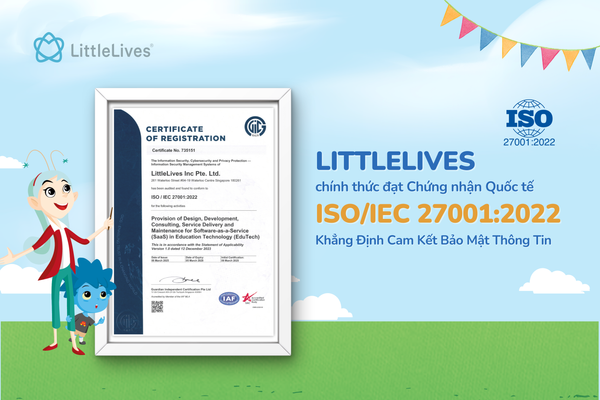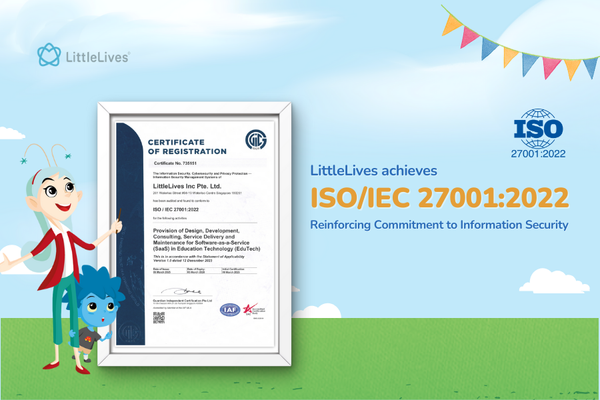5 Frequently Asked Questions About School ERP

School ERP is a complex of technologies implemented in the educational industry and focused on making organizational processes more efficient. This is a management system capable of automating data collection and processing, thereby optimizing school management.
We hope to share answers to common questions that will help you understand what this product is. The data presented in the article relate to those school management systems that are the most relevant today, such as LittleLives.
- Why do you need school ERP?
- Why automation?
- What exactly is process automation in school ERP?
- What to look for when choosing school ERP?
- And do you need one?
Why do you need school ERP?

The ERP program is used in the work of more and more educational institutions. The global ERP software market is projected to reach $78.40 billion by 2026, growing at a CAGR of 10.2% from 2019 to 2026. Thanks to process automation, costs are optimized, errors are minimized, and profits maximized.
Enterprise automation should allow administrators and teachers to easily evaluate the transparency of staff activities and how successfully and efficiently they work. In addition, errors may be made, especially during manual processes.
Why automation?
The advantages of such a school ERP are obvious, and there are many of them:
- improve the quality of work and maximize manpower hours;
- reduce human error ;
- process huge amounts of data;
- maximize school resources;
- sync all school operations;
- in the event of a non-standard situation, ERP will react immediately.
What exactly is process automation in school ERP?

ERP allows you to model school processes of any complexity online. An accessible task manager is provided for users, combining convenience and versatility. With its help, schools can appoint staff to conduct specific tasks, receive statistics on time spent on individual processes, and make plans to optimize their activities. A reminder of deadlines will help you avoid missed deadlines for certain tasks.
- Customer information management. At the heart of every process automation system is a database that unites all information about the company's customers - in this case, students and parents. When this information is used correctly, the school can operate as efficiently as possible. The school management system organizes data and makes it possible to group them depending on specific tasks. For example, the system could provide a convenient opportunity to send a letter with a photo, recall the history of payment of bills and help to report on significant school events using calendar synchronization.
- Automation of the analytics process. The main functions of the ERP system include helping teachers in effective student learning. Thanks to the system, their work can cover a wider range of aspects related to each student. Guided by each step of the program, teachers plan their next one most effectively. With each student's progress recorded in the school management system, they can customize a learning plan. Students could also participate in quizzes to identify their areas of improvement.
- Lead management. This is an equally important function of the school management system. Schools can increase the demand for their services due to the fact that it will start to operate better. Also, each new lead is subject to automatic registration in the system, after which the system itself prompts the steps that will be most effective in a particular situation.
- Customer service management. Long-term relationships with clients are impossible without a well-functioning service. The school management system allows you to set up a high-quality multichannel service. Customer requests and inquiries can be managed based on a reference process. Convenient distribution of payments, communication via quick chat, public grades table, reminders can help keep in touch between parents and teachers.
- Document flow automation. ERP allows you to put in order the workflow in school to further increase the efficiency of managing contracts, invoices, protocols, and incoming correspondence. The program offers to use ready-made templates for the formation of various documents. It is possible to attach scanned copies for quick access to printed versions. Electronic storage contains the entire volume of enterprise documentation. A convenient search allows you to find the desired document in a split second. There is the possibility of group work, as well as sightings, in order to reconcile accounts. All of this, in general, makes the work of teachers easier, making it error-free and aimed solely at creating enjoyable learning for the students.
What to look for when choosing school ERP?

When thinking about purchasing an ERP for school, you can consider two options:
- create a system based on a standard product,
- develop and implement software, taking into account the individual needs of the organization.
The standard product will be more cost-effective and easier to implement. However, it may have limited possibilities for adaptation to the school's needs. This also applies to cloud-based school management systems.
You need to answer the next questions to select the optimal school ERP software:
- What processes are subject to automation?
- Does the functionality of the selected program meet the tasks that it has to solve?
- Is it possible to adjust it to fit the specifics of your process?
- Is there a possibility of promptly making changes to the system without stopping its use if the need arises?
- Is the system easy to use?
- Is it possible to integrate the system with already-installed services or automation programs?
- Who will provide technical support, and under what conditions?
- How much will it cost to implement and own the system?
It is unlikely that it will be possible to do without the help of professionals, so you should seek advice from vendor companies that develop specialized software. It will be useful to analyze the experience of partners and competitors. Based on all the information received, taking into account the specifics of your own industry, you can start choosing a specific product.
We hope that our article helped solve frequently asked questions about school ERP and get an answer to the most important one, "Do you need school management software?". Based on statistics, 53% of businesses believe ERP is one of the priority sectors for investments. This utility has grown in popularity across industries, and as the developer behind LittleLives, we truly believe that this product will help you achieve the desired results within a well-defined time frame.
Used by over 1,500 schools in countries like Singapore, Malaysia, China, Dubai, US, Canada, Vietnam, Thailand and many more, LittleLives strives to make an impact in every aspect of schools.
Interested to find out more about LittleLives? Visit their website or get in touch by contacting LittleLives here.





